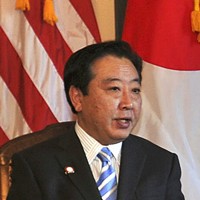Last month, the Center for Strategic and International Studies released the report of a bipartisan study group co-chaired by Richard Armitage and Joseph Nye on improving the U.S.-Japan relationship. The report, titled “U.S.-Japan Alliance: Anchoring Stability in Asia,” received little media attention, and some of its suggestions seem impractical, at least for now. However, its findings deserve consideration by policy analysts interested in strengthening the most enduring U.S. alliance in Asia at a time when Washington is seeking to reinforce its interests in that region.
Although the report finds flaws with various U.S. policies, most of its concern is directed at Japan. In the authors’ view, Japan has several untapped sources of power and influence that could allow it to remain a “tier-one” global player, but perhaps lacks the will to do so. They argue that the Japanese must reduce their inward focus, overcome powerful domestic interests fighting against trade liberalization and set aside longstanding impediments that limit Tokyo’s ability to assume a wider global role.
The study group set out to provide guidance on how Washington and Tokyo can work to prevent Japan’s continued “drift into tier-two status,” which the authors fear would harm not only Japan’s interests, but also those of other Asian countries. The report, as well as two previous ones co-chaired by Nye and Armitage, stresses the importance of a strong U.S.-Japan relationship as an anchor for Washington’s broader policy in East Asia. In particular, the authors argue that a strong U.S.-Japan alliance will help manage China’s rising power by discouraging adventurism on the part of Beijing. By contrast, a weak Japanese-American partnership would invite China to try to exploit its fissures or even divide the two long-standing allies.

